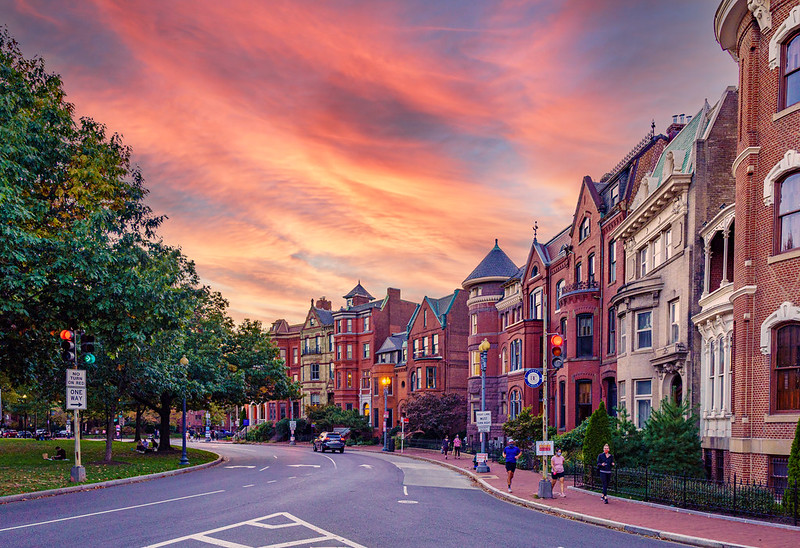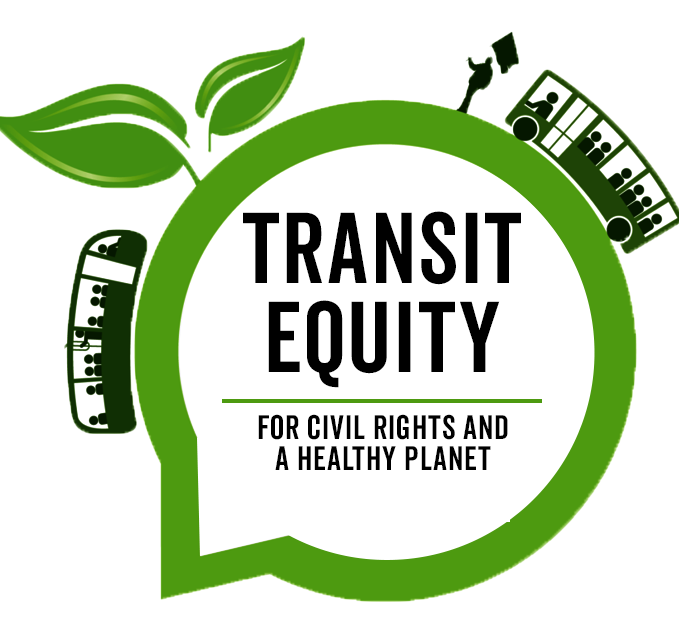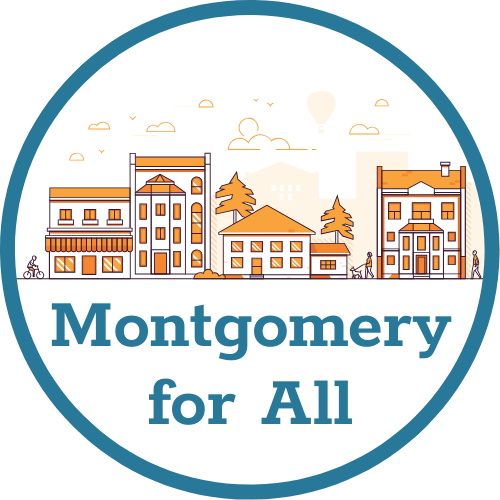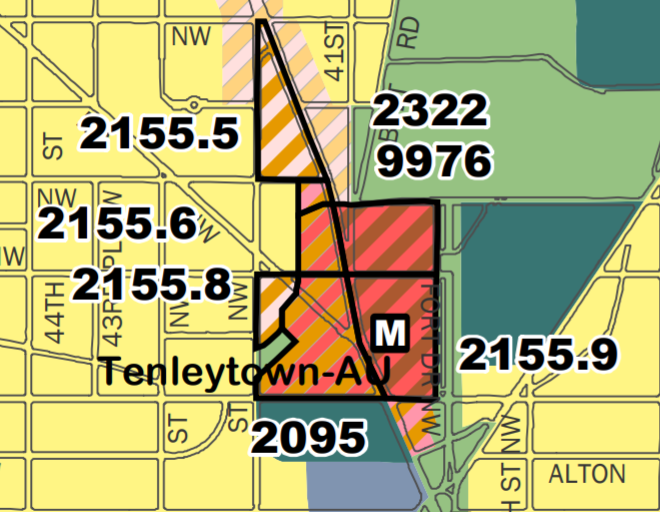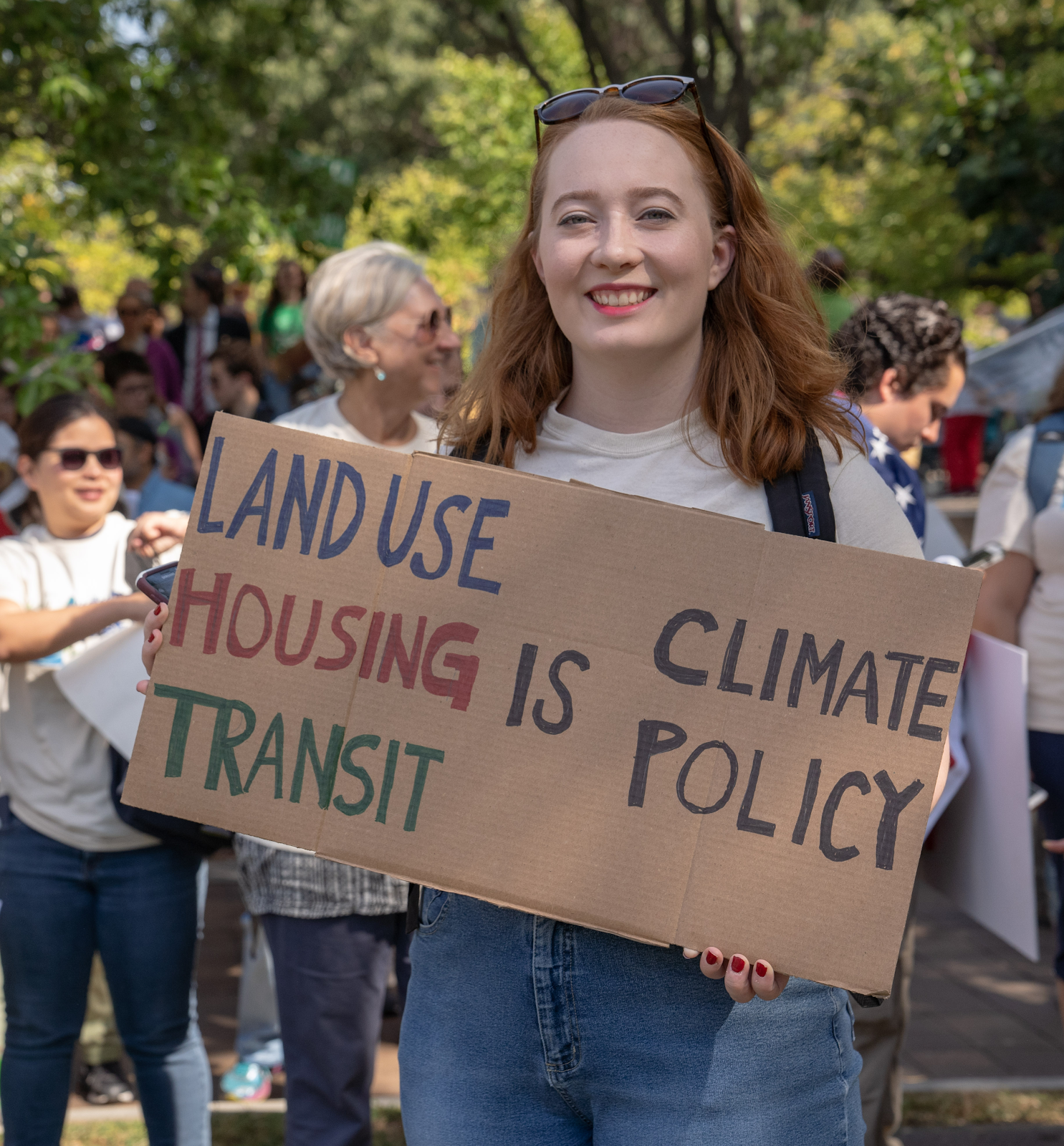From his office window, D.C. developer Bo Menkiti can see the vacant lot where he has long envisioned a mixed-use development on Monroe Street NE in Brookland.
The $60 million project, which was supposed to begin in 2012, was slated to include 213 residential units and 13,000 square feet of retail and restaurants, with commercial space fronting Monroe. It was expected to feature 23 units for residents earning between 50 percent and 80 percent of the area median income. And it would have been built right across the street from a Metro station, tying in with the future development of Catholic University, including Bozzuto’s Monroe Street Market project.
“In my mind, it was about doing something unique,” said Menkiti, founder and CEO of the Menkiti Group, which planned to complete the project by 2014. “There was very little there. This would have been the first significant construction in the neighborhood in many, many years.”
Today, the lot remains vacant, covered in nothing but spring dandelions.
On three separate occasions, D.C.’s highest court, the Court of Appeals, rejected the Brookland development, leaving the Monroe Street project in a state of perpetual limbo. Monroe Street Market has long since delivered, while Menkiti’s project has earned the distinction of being the first in a wave of dozens of planned-unit developments, referred to as PUDs, appealed by community groups since 2012.
What was once a reliable planning tool to create lucrative market-rate homes while preserving affordable housing in one of the country’s most expensive cities has created insurmountable obstacles for developers like Menkiti, as protesters increasingly sue to block PUD projects. Those hurdles reflect growing tensions between developers and neighbors who oppose projects and encapsulate a continuous fight over gentrification in the District and desires to revitalize some of the most depressed areas of D.C. with new buildings.
Now D.C. developers are fighting back by turning away from the laborious PUD process, saying it’s too risky to have their projects tied up in litigation for years. Some are eyeing opportunities outside of the District. Others are pursuing “by-right” developments, which are typically smaller, less dense projects that do not require public hearings or amenities for the community.
And many are working through traditional political channels to convince lawmakers to revise the city’s Comprehensive Plan, a document that guides D.C.’s growth, to remove all doubt that the Zoning Commission has the power and flexibility to approve projects under the plan.
The community appeals have delayed 4,593 new housing units — including 706 deemed affordable — since 2012, according to the latest data available from the Coalition for Smarter Growth, a nonprofit that generally supports higher-density developments and has criticized the repeated citizen appeals.
As of April, about 12 planned-unit developments were under appeal, and there are at least another dozen under the threat of appeal over a variety of assertions, from intense density to displacement of longtime residents.
A combination of forces has given rise to the appeals, including soaring housing prices, population growth and the negative effects of gentrification. The parties behind the appeals are typically grassroots citizens group. And the appeals are relatively cheap and easy to file — it costs only $100.
“It’s an untenable position for the future of a community or a city to be in where one or two individuals can hijack a community process,” Menkiti said. “If that continues, you face some unintended consequences in the health and vitality of those communities.”
All about PUDs
District planners consider PUDs ideal because they check a lot of boxes: They provide community benefits and amenities in exchange for greater density that can result in more affordable housing.
PUDs are also attractive to developers because they can achieve more square footage and more flexibility in design, which allows them to make more money, even with a greater affordable housing component.
But developers say the city needs to fix the process.
“Until the rules are clear, it’s going to be very challenging for any developer in the city to pursue a PUD,” said John Clarkson, a senior vice president with JBG Smith Properties Inc., which teamed up with Gallaudet University to propose an 1,800-unit, 1.3 million-square-foot development that was appealed last year.
“We are working on a few projects in the city right now, and we are looking for partners and it’s challenging when you explain to them the situation. It’s a longer conversation than you would otherwise like to have.”
Developers and Mayor Muriel Bowser have proposed a fix: They want to add language to the 60-page framework of the Comprehensive Plan to erase any ambiguity about the Zoning Commission’s authority. The plan is being revised for the first time since 2011 as part of a regular amendment cycle.
After receiving more than 3,000 amendment proposals from community groups, nonprofits, ANCs and federal agencies, Bowser and the D.C. Office of Planning in March introduced legislation to make clear that the comp plan is meant to serve as a guide — not a straitjacket — and that the Zoning Commission has the authority to engage in a discretionary review of land use categories when deciding whether to approve projects.
“We want the PUD process to work as designed and to be able to generate those public benefits for the community where the development is happening,” said Christopher Delfs, chief of staff for the Office of Planning.
If or when the comp plan will be officially revised will depend on the D.C. Council.
The council held a nearly 16-hour hearing in March collecting feedback from both citizens opposed to the changes and developers who support them. Chairman Phil Mendelson says the body will likely take up the measure after its work on the fiscal 2019 budget is complete.
It’s unclear if a majority supports the change, but Mendelson said he is “very concerned” about developers going through so many appeals.
“It’s not a good thing if the appeal process can simply be used to hold up development,” Mendelson said. “Litigation is rarely a good thing so we have to find a solution to this increase.”
Being vigilant
Developers say the change is needed to remove inconsistency in the process.
“We’re concerned that the courts are substituting their judgment for that of the local bodies who deal in zoning everyday. …I think we need to be vigilant about using our voice to express all the things that communities are negotiating,”said Jamie Weinbaum, executive vice president with Bethesda-based MidCity Development, the company behind the $600 million redevelopment of Brookland Manor in Northeast D.C.
MidCity continues to face legal challenges to its $600 million redevelopment of the 1,800-unit Brookland Manor. Just this week, the president of the Brookland Manor/Brentwood Village Residents Association filed an appeal, forcing the company to hold off breaking ground on the first two facilities — a 200-unit all-affordable senior building and a 131-unit multifamily building — this summer. Weinbaum said MidCity is now studying alternative options for the project.
Separately, a group called One DC has filed a federal lawsuit over the size of the units approved for Brookland Manor.
EYA Senior Vice President Aakash Thakkar said the citizens appealing projects typically don’t represent the majority.
“The projects that I am involved in have widespread support,” said Thakkar, whose company is involved in the McMillan Sand Filtration project as well as an 80-townhome development at the Josephites Seminary in Michigan Park that also has been appealed. “I’m not saying there isn’t some resistance, but in both cases — McMillan and Josephites — we had full ANC support, which is the group you are supposed to get community support from.”
He and other developers have joined the D.C. Housing Priorities Coalition to lobby for comp plan changes. The unlikely coalition of developers, affordable housing organizations and public policy groups was organized by Greater Greater Washington, a blog and nonprofit founded in 2008 with a focus on housing and transportation issues. GGW was awarded a $250,000 grant in 2017 from the Open Philanthropy project to fund housing advocacy initiatives, including the coalition.
Broad consequences
In a city faced with a dearth of affordable housing and rising land costs, the movement away from PUDs could have serious consequences, exacerbating an ever-growing divide between affluent citizens and the city’s poor.
Public policy advocates say it will further constrict the supply of affordable housing for those who want and need to live in the District — such as middle-income employees and young families who rely on a variety of multifamily units in the city. And a flight to by-right developments that don’t require public hearings means less participation from local citizens to offer input on what is best for their community, said Cheryl Cort, policy director with the Coalition for Smarter Growth.
“We know that we are losing affordable housing through the seizing up of the process,” Cort said. “We are getting less housing out of sites that are perfectly capable of producing more housing. … It just worsens the city’s housing market from an affordability perspective.”
The protesters are equally upset, ironically for largely the same reason: the need for more affordable housing. Their frustration lies with the Zoning Commission’s decisions to approve developments that they believe lack sufficient housing for families and the working class. D.C., they say, will become even more exclusive than it already is, due to high-density projects they fear will push out longtime residents of developments such as Barry Farm, a public housing complex near the Anacostia Metro station.
“I think we are all fed up,” said Ari Theresa, an attorney for Barry Farm Tenants and Allies Association, which recently won its appeal of the public-private partnership’s PUD. “People are upset. The city has lost 40,000 black residents over the past 10 years. These high-density projects that these developers are proposing displace neighborhoods, the social connection that people have in these neighborhoods.”
The affordability question
By-right developments — those that are essentially allowed automatically by zoning and don’t require a PUD — also must include affordable housing, though usually not as much as provided with a PUD.
The city’s Inclusionary Zoning law requires 8 percent to 10 percent of residential floor area to be set aside for affordable rental or for-sale units in new residential projects of 10 or more units. But when development proposals go through the PUD process, the Office of Planning is able to negotiate a higher level of affordability than IZ requires.
Between 2012 and 2017, there were nearly 6,000 affordable housing units approved through the PUD process, the Office of Planning reports. That’s 3,600 more than would have been required under the IZ law alone.
Jim Campbell, principal of D.C.-based Somerset Development Co., was able to boost the affordability component when he used the PUD process to complete a $200 million redevelopment of the distressed 48-unit Portner Place Section 8 complex on U Street NW. He delivered 288 market-rate units and 96 affordable homes.
“The increase in density enabled us to double the affordability on site in the most expensive land location in the District of Columbia,” Campbell said.
By-right only?
After years of dealing with appeals of the controversial redevelopment of the McMillan Sand Filtration site, developers like Adam Weers have learned a valuable lesson: The PUD process is not worth the hassle.
Weers, a principal with Trammell Crow, said his company plans to bypass the entire process by working on smaller by-right projects. Doing so won’t open up developments planned by Trammell Crow to the same legal challenges that have hamstrung McMillan. It was appealed in 2016 to the D.C. Court of Appeals, which vacated the Zoning Commission’s previous approval on the basis that it did not adequately address issues related to the environment, land values, open space, building height and increased demand for public services. However, the Mayor’s Agent recently ruled in favor of the project and approved the necessary demolition for it to proceed. Weers hopes demolition will begin this year.
Weers declined to name specific projects, but said Trammell Crow is now actively engaged in multiple RFPs on sites across the District, with the key selling point being that they are by-right developments. “We believe this approach gives us a competitive advantage that provides tangible benefits to the owners of these properties in the form of faster execution, lower risk and a shorter timeline to completing the project. And we have communicated it as such,” Weers said.
MRP Realty has already abandoned a PUD at its Bryant Street project. Senior Vice President Michael Skena said the developer lost 14 months of planning time after a citizens group called Ward 5 Alliance for Equity appealed the company’s $650 million, 1,631-unit, Zoning Commission-approved PUD on Rhode Island Avenue NE, of which 8 percent, or about 130 units, would be affordable. To allow for more flexibility in later phases of the Bryant Street project, MRP last year dropped the PUD and switched to by-right development. MRP’s approved by-right plan is smaller, now calling for approximately 1,450 units of which 8 percent, or 116 units, would be affordable.
“I think it would be very difficult for a developer like us to move forward with a plan that requires a PUD,” Skena said. “The most important thing we lost was time. When we were appealed, we stopped all design. We had to go back and do a whole new schematic design for our phase one buildings.”
That said, MRP remained committed to the amenities it had already promised the community as part of the PUD plan.
“We went back to all of our stakeholders and said, ‘Look, there’s a way for us to move forward by-right,’” Skena said. “We lose about 10 percent of our density but because we have already invested in the community engagement, we don’t believe it is right to give up on the amenities we have already promised so we are going to move forward by-right, but we are also going to do all the things we said we were going to do in the PUD.”
Skena didn’t have a specific cost for the amenities, but said the benefits package certainly runs into the thousands of dollars. Among the amenities that MRP will provide are the affordable housing units required as part of Inclusionary Zoning laws, new pedestrian paths, upgraded bike paths adjacent to the site, and new publicly accessible green space. MRP is also providing grants to various local nonprofits and has committed to local hiring for the project, which is expected to begin this year and be complete within a decade.
Abandon D.C.?
Menkiti, the developer behind the Monroe Street project, said he is thinking twice about investing in D.C. projects after the Brookland development became the poster child for everything that can go wrong with a PUD.
“A lot of these organizations, including ours, have other places to invest,” Menkiti said. “We’ve made investments in Massachusetts and Prince George’s County. I don’t need to invest in Washington, D.C., if this is the process.”
It’s easy for any developer to make such pronouncements, but Menkiti says the numbers back up the threat: The delays have cost Menkiti construction and holding costs of about $5 million, not to mention legal costs of around $1 million. He estimates that the lost tax revenue and other public benefits have reached more than $10 million, growing by another $2 million each year the project is delayed.
“If we hadn’t had a very successful brokerage business, this would have put us out of business as a company,” Menkiti said.
The project has mainly been held up by appeals from a group of residents known as the “200 Footers,” who live within 200 feet of the Monroe Street project. They have repeatedly asserted that the development should not have been approved because the Zoning Commission erred in classifying its density.
For now, the project is stalled, as Menkiti needs to go back to the commission once again for another approval. But he is dedicated to seeing the development through, even if it’s potentially the last one he’ll pursue in Washington.
“The idea that there is going to be a vacant lot across the street from a Metro station in a community that desperately needs that connectivity doesn’t make any sense to me,” he said.
ULI studying approval process
The local chapter of the Urban Land Institute has convened a task force to analyze the approvals process in D.C. and other jurisdictions. It expects to complete a report in December and provide ULI members with an action plan for taking information out to the real estate community.
Yolanda Cole, district chair of ULI Washington, said the study is urgently needed, as at least three developers have told her within the last six months that they are now going the by-right route to avoid the risk of waiting years to get through the approval process.
“People are walking in the door saying, ‘We are going to do this by-right, because we are not going to go through the headache, effort, time and have the risk that we are going to be overturned,” Cole said. “By-right is a whole lot easier, and it’s less risky. It takes less time.”
The delays are not just costly to the developers. It affects everyone in the development food chain, including architects and engineers, said Cole, senior principal at Hickok Cole Architects Inc.
“It’s very hard for us to get paid for all that time as well, because it’s more than anybody has in their pro forma,” Cole said. “It’s squeezing everybody.”
HOW THE PUD PROCESS WORKS
Stands for: Planned-unit development
Description: A PUD is an agreement on how much space and what uses — generally residential and retail — can be built in a specific area of the city, down to a development site or block. PUDs generally cover a minimum of 15,000 square feet or 1 acre. The goal is to create a high-quality development that not only permits developers to construct higher and denser buildings than they could without a PUD, but to also provide public benefits for the surrounding neighborhood, ranging from green space to bike paths to affordable housing and community grants.
How it works: Once the developer files its PUD application, it negotiates a benefits package with the affected Advisory Neighborhood Commissions while negotiating design and density before the Zoning Commission. The Zoning Commission then holds public hearings and considers the proposal while giving “great weight” to the ANC position as required.
The final say: The commission issues a decision, usually an approval with conditions, and issues a formalized zoning order. PUD applications do not go before the D.C. Council.
HOW THE APPEALS PROCESS WORKS
The first step: If a party wants to oppose the Zoning Commission’s decision, it files a petition for judicial review of a specific case to the D.C. Court of Appeals. The fee is $100. The Zoning Commission has 60 days to file an administrative record with the court that typically includes the transcript of its original hearing, a written decision and written submissions from various parties. Based on briefs and a potential oral argument, the Court of Appeals, typically a three-judge panel — will affirm the Zoning Commission’s decision, deny the PUD or remand the case back to the commission for further review. The process can easily take six months to a year.
The next step: If a PUD is rejected by a Court of Appeals panel, there are few avenues besides a petition for a full-court review or seeking the U.S. Supreme Court’s intervention. The developer would have to file revised plans with the Zoning Commission it hopes would survive future challenges, or just give up.
Read the full story here
